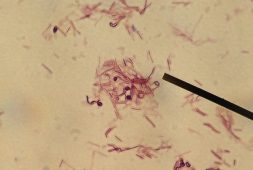Scientists See Hope In The Promising Molecule That Can Kill Just The Solid Cancer Tumor Cells

City of Hope has made an announcement regarding the positive progress of the inaugural patient who received the innovative cancer medication AOH1996.
The ongoing Phase 1 clinical trial, focused on evaluating the safety of a potentially groundbreaking cancer intervention for individuals with recurring solid tumors, is anticipated to extend over the next two years. This experimental oral treatment has exhibited promise in preclinical investigations, demonstrating efficacy against cells originating from various cancer types such as breast, prostate, brain, ovarian, cervical, skin, and lung cancers.
Dr. Linda Malkas, the driving force behind AOH1996’s development within City of Hope’s Department of Molecular Diagnostics & Experimental Therapeutics, embarked on this journey two decades ago. Her vision centered on utilizing proliferating cell nuclear antigen (PCNA), a key player in cell replication and repair, as the foundation for a less harmful cancer therapy. The objective was to selectively target mutated cancer cells while sparing healthy ones.
Preliminary preclinical studies have substantiated the treatment’s ability to zero in on PCNA, impeding the proliferation and metastasis of a wide spectrum of human cancer cells.
The research guidelines underscore that AOH1996 demonstrates minimal toxicity to normal cells. Treatment with this medication accomplishes a dual effect: it halts DNA synthesis within cells and hinders DNA repair mechanisms, ultimately inducing a form of programmed cell death known as apoptosis in cancerous cells.
“Imagine cancer as the water filling up a bathtub. Left unchecked, the tumors or water will eventually overflow and damage other parts of your home. The treatment my team at City of Hope created is akin to a watchful homeowner who shuts the water off — stopping the spread of tumors to other parts of the metaphorical house — and then drains the tub, eliminating the cancer,” Malkas shared.
“No one has ever targeted PCNA as a therapeutic because it was viewed as ‘undruggable,’” said Dr. Long Gu, co-author of the study. “We discovered that PCNA is one of the potential causes of increased nucleic acid replication errors in cancer cells.”
“Now that we know the problem area and can inhibit it, we will dig deeper to understand the process to develop more personalized, targeted cancer medicines,” he added.
The City of Hope Los Angeles is currently conducting Phase 1 of a clinical trial. This trial aims to establish the highest tolerable dosage for the investigational medication, AOH1996, and to assess its preliminary effectiveness.
The study is open to adult individuals with solid tumors that haven’t responded to standard treatments. Enrolled participants will be requested to take the pill form of the medication twice daily.
Malkas explained that numerous cancer patients have benefited from targeted therapies like checkpoint inhibitors, which impede cancer growth and spread. She also expressed the hope that AOH1996 might eventually gain approval from the U.S. Food and Drug Administration as an inhibitor. This could lead to its use in combination with existing therapies, enhancing cancer-fighting effects while reducing the side effects linked to crucial cancer treatments.
The name AOH1996 honors Anna Olivia Healey, born in 1996, who tragically lost her battle with cancer. This medication is exclusively licensed to RLL, LLC, a biotechnology company co-founded by Malkas, by City of Hope.
Through the resources and backing of City of Hope, Malkas succeeded in translating her promising laboratory discovery into a clinical trial. This enables her to bring the potential therapies of the future to those in need today.



